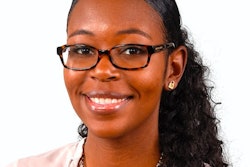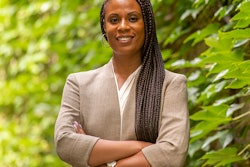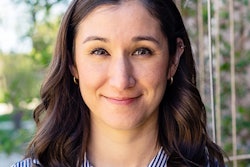Title: Associate Professor of Mathematics Education & STEM Higher Education, Vanderbilt University-Peabody College of Education & Human Development
Tenured: Yes
Age: 35
Education: B.A., mathematics, Rutgers University; Ed.M., mathematics education; and Ph.D., mathematics education
Career mentors: Dr. Dan Battey, Rutgers University; Dr. Ilana Horn, Vanderbilt University; and Dr. Nicole M. Joseph, Vanderbilt University
Words of wisdom/advice for new faculty members: “Don’t lose sight of the impact that your research and practices have on individuals’ humanities and the collective good.”
In November, Dr. Luis Antonio Leyva, associate professor of Mathematics Education and STEM Higher Education at Vanderbilt University Peabody College of Education & Human Development, posted a tweet that reflected not only his area of research and teaching, but also his commitment to making STEM more inclusive for students from historically marginalized backgrounds.
“I love seeing my feed blow up w/ the news that numerous research proposals adopting critical & intersectional approaches to advancing justice in math & STEM higher ed were accepted as presentations during the 2024 @AERA_EdResearch Annual Mtg in Philadelphia. Congrats, colleagues!”
Using an interdisciplinary approach, Leyva’s research explores how interlocking systems of power, including racism and cisheteropatriarchy, impact classroom teaching and student support in undergraduate mathematics and STEM higher education. He aims to disrupt those systems and advance intersectional justice through education in math and science.
Leyva is a certified K-12 math teacher and has years of professional experience across STEM support initiatives in higher education. While working in programs like the Upward Bound Math-Science initiative and summer bridge programs, he experienced how math teaching and learning has a strong impact on how students build their sense of identity with the discipline.
“We see how introductory courses like Calculus play a unique role as a gateway or barrier for racially minoritized students in terms of access to STEM majors and careers,” he says. “We need to transform math classrooms as spaces that not only ensure equitable access to content, but also nurture historically marginalized students’ identities as knowledge producers in STEM fields.”
Dr. Donna Y. Ford, a Distinguished Professor of Education and Human Ecology at The Ohio State University, says she is impressed by Leyva’s scholarly productivity, noting that his research addresses important gaps in STEM educational research and literature. Ford envisions him having an impact on recruitment and retention.
“He’s bringing innovative approaches. For example, one of them is his focus on intersectionality. A second one is his attention to not just race but also gender and sexual orientation,” says Ford. “Also, his research explores issues of equity, STEM identity, and classroom experiences among minoritized populations, which I think is crucial to informing what can be done to recruit more underrepresented students into STEM, particularly through math.”
One of Leyva’s active research projects is Transformative Inclusion in Postsecondary STEM (TIPS). This is a research partnership with an Hispanic-Serving Institution in California, where the mathematics department has committed to examining whether its practices are truly serving Latinx students.
“We are trying to really understand how practices and support in introductory mathematics courses are expanding or limiting opportunities for Latine students to feel served, particularly in terms of cultural responsiveness and affirmation of social identities,” Leyva says.
Another project that he is working on is titled, “Queer Students of Color in STEM,” a multi-institutional study across PWIs and MSIs. A total of 60 Black, Latinx, and Asian LGBTQ students pursuing STEM majors participated in the study.
“Our team analyzes students’ reports of oppressive and supportive experiences as multiple marginalized individuals in terms of race, gender, and sexuality across STEM contexts. Insights from our analysis inform nuanced approaches to educational practices that allow queer and trans students of color to be seen for their full identities as STEM learners,” Leyva explains.
Leyva teaches and mentors undergraduate and graduate students. He is the director of the PRISM (Power, Resistance & Identity in STEM Education) research lab, an interdisciplinary collective of undergraduates and graduate student researchers, who work on projects addressing issues of equity and intersectional justice in STEM higher education. Leyva says he hopes his mentorship in PRISM will usher in a new generation of scholars and practitioners whose contributions disrupt STEM as a white, cisheteropatriarchal space.
“Hopefully, through this work in PRISM, we can begin to transform the teaching and learning in higher education in ways that depart from exclusionary beliefs about success in mathematics and STEM more broadly,” says Leyva. “Narratives of how students are thriving on their own terms and as their full selves in STEM provide an important foundation to mobilize change in STEM higher education that advances intersectional justice among multiple marginalized groups.”





















